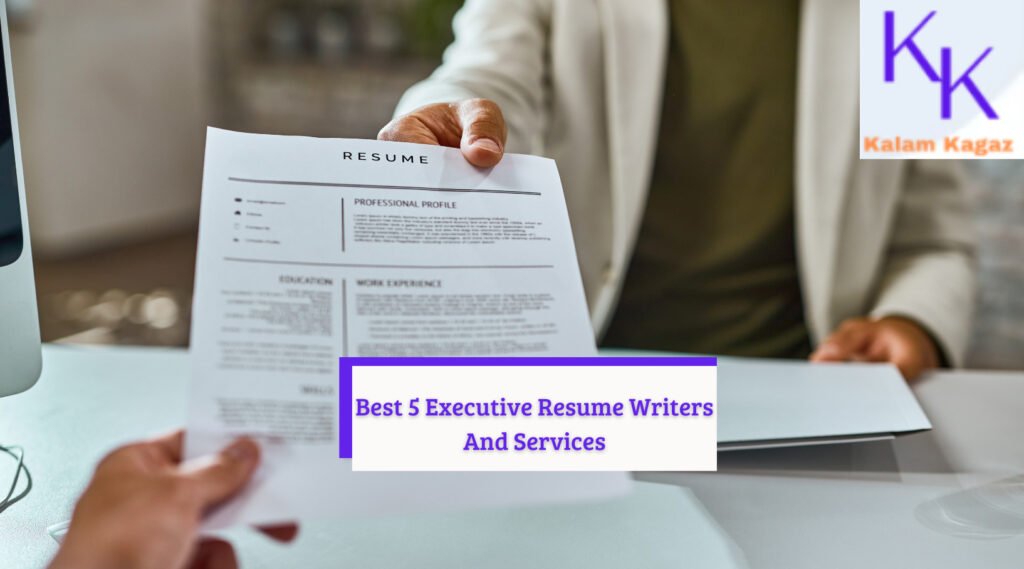- January 6, 2025
- by Kalam Kagaz
- Resume Writing
In the modern workplace, success often hinges not just on what you know but on how well you work with others. Soft skills—those personal attributes that enable you to build relationships, adapt to challenges, and navigate various professional environments—are essential for making a lasting impression.
So, including the right soft skills for resume can make you stand out, showing employers you have the qualities to succeed beyond technical expertise.
In this post, I have gathered the 15 most sought-after soft skills that you need to have in your resume. we build premium ATS friendly resume.
Why Soft Skills Are Crucial for Your Resume
Soft skills bridge the gap between your qualifications and your ability to thrive in a professional setting. They demonstrate your adaptability, teamwork, and leadership potential, all of which are invaluable in today’s collaborative workplaces.
For Freshers:
If you’re new to the job market, your soft skills can compensate for limited experience. Highlighting transferable abilities like communication and problem-solving can convince employers of your readiness to learn and grow.
For Experienced Professionals:
Soft skills illustrate your leadership qualities, emotional intelligence, and capacity to drive results. They provide context to your achievements and show that your contributions go beyond technical deliverables.
Soft Skills Alone Won’t Get You Hired—How You Showcase Them Will
Everyone claims to have communication and teamwork skills. But only a professionally crafted resume proves it.
At Kalam Kagaz, we don’t just list your soft skills—we highlight them as strategic assets that make recruiters say “yes.”
Unlock Your Soft Skills Advantage With Kalam Kagaz! Get 15% OFF Today!
15 Must-Have Soft Skills for Resume
1. Communication Skills
This foundational skill involves the ability to convey ideas effectively through verbal, non-verbal, and written means. Great communication ensures seamless collaboration and minimizes misunderstandings.
How to Showcase:
- Freshers: “Delivered presentations during university projects, receiving positive feedback for clarity and engagement.”
- Experienced Professionals: “Facilitated cross-departmental meetings, aligning teams and enhancing project outcomes by 20%.”
2. Teamwork and Collaboration
Employers value individuals who thrive in group settings and contribute to collective goals. Teamwork demonstrates that you can build strong interpersonal relationships.
How to Showcase:
- Mention projects or initiatives where you worked in diverse teams to achieve common objectives.
Want Recruiters to Notice You? Use Your Soft Skills Right. Don’t Miss!! 15% Off On Your Resume!
3. Problem-Solving
The ability to identify challenges and devise effective solutions is a prized asset. It highlights your critical thinking and adaptability.
Example:
- “Redesigned a workflow that reduced customer complaints by 15%, enhancing satisfaction ratings.”
4. Time Management
Effective time management shows that you can juggle priorities and deliver results on schedule, an essential skill in fast-paced environments.
Example:
- “Balanced multiple academic deadlines while volunteering, consistently meeting expectations.”
Employers Notice What’s Written Right In Your Resume
You’ve got the soft skills. We’ve got the words to impress. Get expert-crafted resumes with Kalam Kagaz! Save ₹300 Now!
5. Adaptability
Workplaces are dynamic, and adaptability shows your readiness to embrace new roles, technologies, or environments.
How to Showcase:
- Provide examples of how you adjusted to new tools, work cultures, or unexpected challenges.
6. Leadership
Leadership isn’t exclusive to management roles—it’s about motivating and guiding others toward shared goals. Even small examples can make a big impact.
Example:
- Freshers: “Led a university fundraising event that exceeded targets by 25%.”
- Experienced Professionals: “Managed a team of 12, achieving a project delivery rate 10% ahead of schedule.”
Don’t Let Poor Presentation Undermine Great Skills. Let Kalam Kagaz highlight your best with a standout resume!
7. Critical Thinking
Critical thinkers analyze data and scenarios objectively to make informed decisions.
Example:
- “Devised a data-driven strategy that increased operational efficiency by 18%.”
8. Emotional Intelligence
Emotional intelligence includes empathy, self-awareness, and interpersonal skills. It’s essential for building trust and managing conflicts.
Example:
- “Mediated a dispute between team members, restoring productivity and morale.”
9. Work Ethic
This encompasses dependability, diligence, and a commitment to excellence.
Example:
- “Consistently met tight deadlines without compromising quality over a two-year period.”
10. Creativity and Innovation
Employers value those who bring fresh perspectives and innovative ideas.
Example:
- “Proposed a new marketing campaign strategy, leading to a 25% increase in engagement.”
Your Resume = Your First Impression. Make It Unforgettable.
Soft skills matter—but only if they’re positioned right. Get your resume professionally rewritten with ₹300 OFF today!
11. Interpersonal Skills
Interpersonal skills reflect your ability to interact harmoniously with colleagues, clients, and stakeholders.
Example:
- “Established strong client relationships that led to a 30% increase in repeat business.”
12. Decision-Making
This skill demonstrates your ability to evaluate options and make sound choices under pressure.
Example:
- “Made a data-driven decision to reallocate resources, saving the company $10,000 annually.”
13. Multitasking
Juggling multiple priorities effectively is crucial in many roles, especially in high-pressure environments.
Example:
- “Simultaneously managed client deliverables and team training sessions, maintaining a 95% satisfaction rate.”
14. Negotiation and Persuasion
This skill is about influencing outcomes while fostering mutual respect and understanding.
Example:
- “Negotiated vendor contracts, reducing costs by 12% while maintaining quality standards.”
15. Attention to Detail
Employers value precision and thoroughness, especially in roles involving quality assurance or compliance.
Example:
- “Ensured 100% accuracy in financial reports over two years.”
Why Soft Skills Need Smart Presentation:
Listing “leadership” isn’t enough; we build compelling stories that show it in action
Generic resumes get lost in the pile, We align your skills with what recruiters are truly seeking
Overused templates hurt your credibility, We customize each line to your profile and industry
Get Your Resume That Helps You Get The Job! Save INR 300 Now!
How To Incorporate Soft Skills Into Your Resume
- Match Soft Skills with the Job Description: Tailor your skills to the role by identifying what the employer values most.
- Provide Context: Don’t just list skills; describe how you’ve used them to achieve tangible outcomes.
- Quantify Achievements: Whenever possible, include numbers or percentages to highlight the impact of your soft skills.
Conclusion
Including soft skills for a resume is no longer optional; it’s a necessity. Whether you’re a fresher or an experienced professional, these interpersonal abilities demonstrate your potential to excel and grow.
Remember to customize your soft skills to the job role, back them up with examples, and watch your resume become a powerful tool in your job search.
FAQs About Soft Skills for Resume
What are the 7 soft skills?
The most commonly cited soft skills are communication, teamwork, problem-solving, time management, adaptability, leadership, and work ethic.
What to put in soft skills in a resume?
Choose skills relevant to the job and provide examples or results to substantiate your claims.
What are 5 hard skills and soft skills?
- Hard Skills: Data analysis, programming, foreign languages, graphic design, and SEO.
- Soft Skills: Critical thinking, collaboration, emotional intelligence, decision-making, and creativity.
What skills to put on a CV?
Include a mix of both soft and hard skills tailored to the job requirements.
What are the 10 key soft skills?
These include communication, adaptability, creativity, teamwork, leadership, problem-solving, work ethic, decision-making, multitasking, and attention to detail.
What are the 4 C soft skills?
Critical thinking, communication, collaboration, and creativity are the 4 C’s of 21st-century workplace skills.






